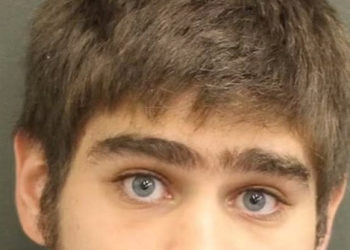Detroit City Council President Mary Sheffield and megachurch leader Solomon Kinloch Jr. will face off in the November general election ballot for mayor, as the city looks to elect its first new leader in more than a decade.
Sheffield emerged as the top vote-getter in the city’s open primary election on August 5. Kinloch Jr. secured second place in a crowded nonpartisan primary, according to The Associated Press.
Incumbent Mayor Mike Duggan is stepping aside after three terms in order to run for Michigan governor.
Why It Matters
The upcoming mayoral election presents a pivotal decision for Detroit as it seeks to chart a new course after 12 years under Duggan’s leadership. Sheffield’s primary victory positions her to potentially become the city’s first female mayor, while Kinloch’s candidacy brings a voice representing Detroit’s faith and grassroots communities.
Core campaign promises from both candidates focus on affordable housing, equitable neighborhood investment, crime prevention, and improving quality of life for all residents—reflecting ongoing priorities in a city balancing urban renewal with persistent socioeconomic divides. The contest will be decided in the general election on November 4.
What To Know
With more than 95 percent of the votes counted, Sheffield led Tuesday’s nonpartisan primary with 50.8 percent (43,572 votes), followed by Kinloch at 17.4 percent (14,893).
Former City Council President Saunteel Jenkins placed third with 16 percent (13,732).
The remaining votes were split among several other candidates, including former Police Chief James Craig and current council member Fred Durhal III.
Overall turnout ranged between 13-18 percent, with more than 85,000 votes cast according to the Detroit City Clerk’s office.
This mayoral race follows a period of pronounced recovery and investment in Detroit. Duggan led the city out of municipal bankruptcy, oversaw 12 consecutive balanced budgets, and championed affordability and anti-blight initiatives.
Population estimates in 2023 indicated Detroit’s first growth in decades, with the city’s population rising to approximately 633,000 residents. Key issues remain, however—extending prosperity to outlying neighborhoods, maintaining fiscal discipline, further reducing crime, and adapting to an economy still tied to the automotive sector, which has faced new challenges from national tariff policies.
The leading candidates have both cited the need for greater attention to neighborhood development and crime prevention.
What People Are Saying
Mary Sheffield said at her campaign event on Tuesday: “We all have the same issues. We want safe neighborhoods, we want affordable housing, we want access to quality education…but I do believe that our neighborhoods need more investment, without a doubt. And we’re going to elevate those issues and ensure that we’re now bringing more attention to our communities and our neighborhoods.”
Solomon Kinloch Jr. told supporters after the primary: “Until we reach the whole town, we have not done nearly enough. I didn’t enter this race to chase power. I came to serve with a purpose. If we want a city that shines, we cannot ignore what’s in the shadows. If we want Detroit to rise, we cannot celebrate billions in investment downtown, but poverty in the neighborhoods.”
What Happens Next
The general election for Detroit mayor will take place on November 4, 2025.
The post Detroit Mayoral Primary Election Results Set Up Showdown appeared first on Newsweek.




